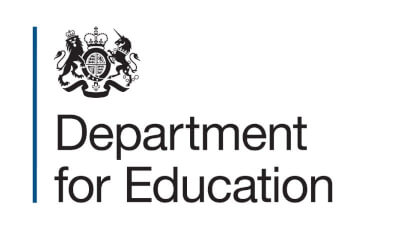What schools are expected to teach
In England
In September 2020 Relationships Education became compulsory in all primary schools in England. Health Education (of which puberty education is a key part) is also compulsory. Schools are encouraged by the DfE to teach sex education as it prepares pupils for their transition to secondary school. For more information about how we define sex education take a look at Question 3.2 of our FAQs page.
Parts of sex education remain non-statutory, but the Department of Education (DfE) recommends that schools teach a sex education programme tailored to the age and physical and emotional maturity of the pupils. This programme should be in line with pupil need, informed by pupil voice and participation in curriculum development, and in response to issues as they arise in the school and wider community.
All schools should work closely with parents when planning and delivering these subjects. Schools should ensure that parents know what will be taught and when, and clearly communicate the fact that they have the right to request that their child be withdrawn from some or all of sex education delivered as part of statutory RSE.
All maintained schools should continue teaching reproduction as part of the Science National Curriculum, and parents do not have the right to withdraw from this.
The DfE produced a guide for parents to help you understand more about statutory Relationships Education and Health Education.
All schools should work closely with parents when planning and delivering these subjects. Schools should ensure that parents know what will be taught and when, and clearly communicate the fact that they have the right to request that their child be withdrawn from some or all of sex education delivered as part of statutory RSE.
All maintained schools should continue teaching reproduction as part of the Science National Curriculum, and parents do not have the right to withdraw from this.
The DfE produced a guide for parents to help you understand more about statutory Relationships Education and Health Education.

In Scotland
In December 2014 the Scottish Learning Directorate published the Conduct of relationships, sexual health and parenthood in schools making Relationships, Sexual Health and Parenthood (RSHP) education statutory in all local authority-managed schools. RSHP education is a key part of Health and Wellbeing within the Curriculum for Excellence. RSHP education focuses on equipping children and young people with the knowledge, skills, and values needed to make informed and positive choices about forming relationships.
The implementation of RSHP education strongly reflects the UN Committee on the Rights of the Child (UNRC), which mirrors broader steps taken across Scottish public policy in the realisation of children's rights.
It should be standard practice for schools to consult with parents and carers when they are developing or reviewing their programme of RSHP education. All parents and carers should be given the opportunity, in advance, to view key teaching materials and to ask questions about any aspect of the programme; evidence suggests that where this has happened, parents and carers feel more confident about speaking to their children at home and addressing their questions.
In the instance of a parent wishing to withdraw a school-aged child from sexual health education lessons, schools must remind parents of the child’s right to an education and to participate, bearing in mind their age and maturity. Where, after due consideration, the parent or carer decides to withdraw a school-aged child from sexual health education lessons, arrangements should be made for the child to have alternative positive educational provision, which meets the Health and Wellbeing outcomes.
Parents are able to access RSHP Scotland's Frequently Asked Questions regarding the national resources for RSHP education and its content.
The implementation of RSHP education strongly reflects the UN Committee on the Rights of the Child (UNRC), which mirrors broader steps taken across Scottish public policy in the realisation of children's rights.
It should be standard practice for schools to consult with parents and carers when they are developing or reviewing their programme of RSHP education. All parents and carers should be given the opportunity, in advance, to view key teaching materials and to ask questions about any aspect of the programme; evidence suggests that where this has happened, parents and carers feel more confident about speaking to their children at home and addressing their questions.
In the instance of a parent wishing to withdraw a school-aged child from sexual health education lessons, schools must remind parents of the child’s right to an education and to participate, bearing in mind their age and maturity. Where, after due consideration, the parent or carer decides to withdraw a school-aged child from sexual health education lessons, arrangements should be made for the child to have alternative positive educational provision, which meets the Health and Wellbeing outcomes.
Parents are able to access RSHP Scotland's Frequently Asked Questions regarding the national resources for RSHP education and its content.


